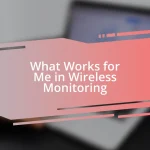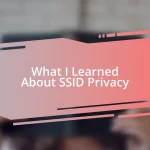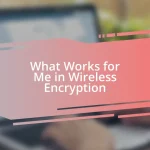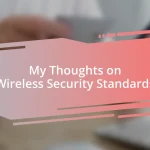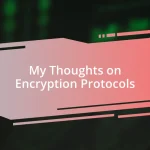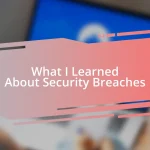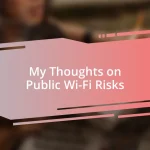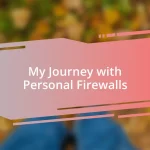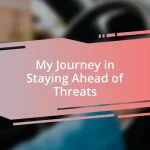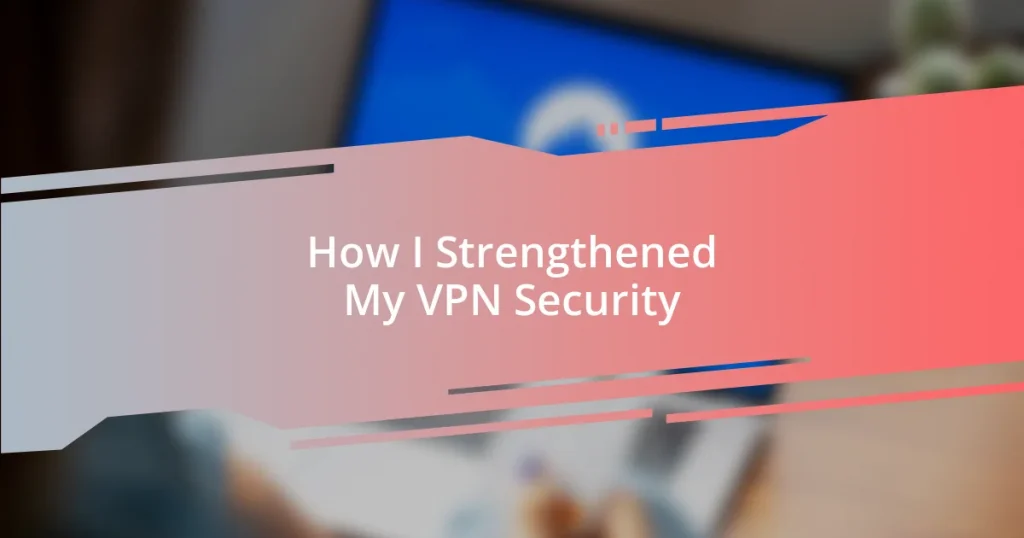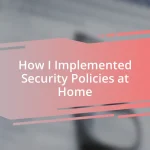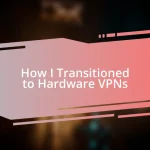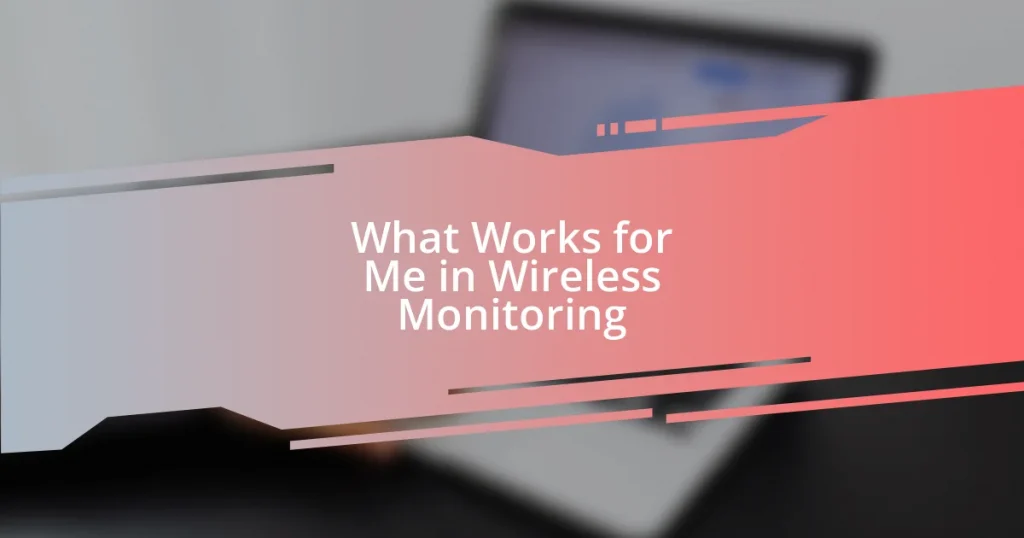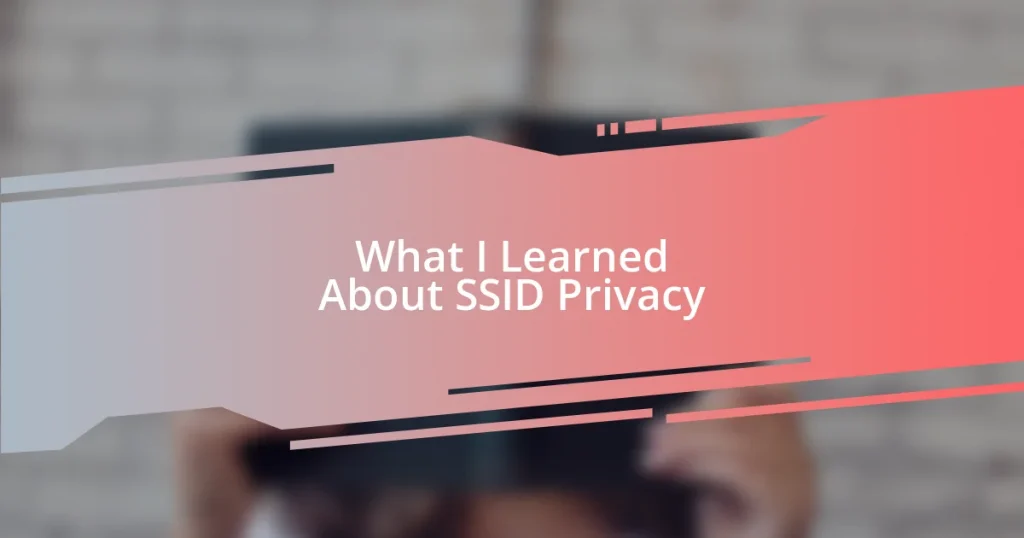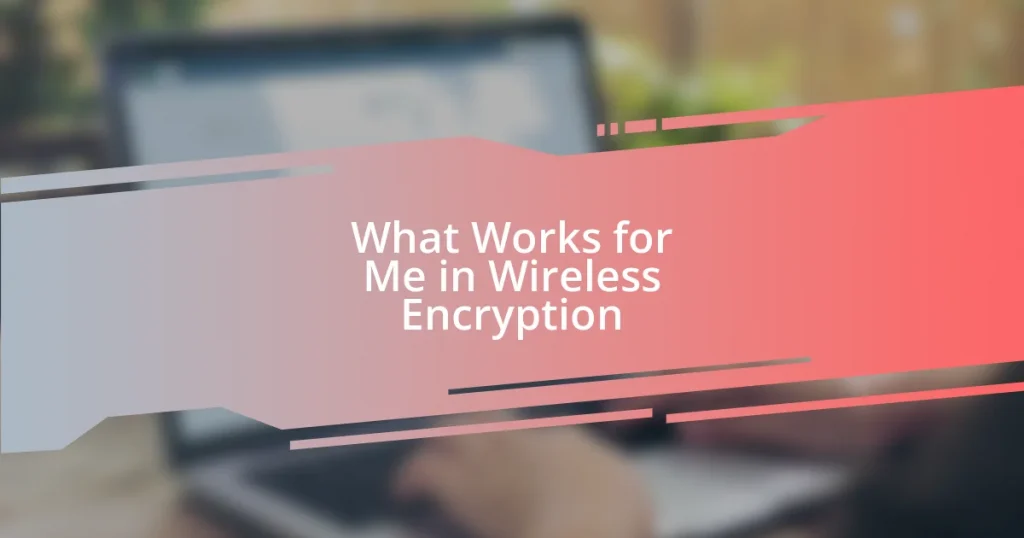Key takeaways:
- A VPN creates a secure, encrypted connection to protect user data on public networks and allows access to restricted content.
- Choosing a reliable VPN provider involves looking for a no-logs policy, strong encryption protocols, and good customer support.
- Regularly updating VPN software and monitoring activity enhances security and ensures a better user experience.
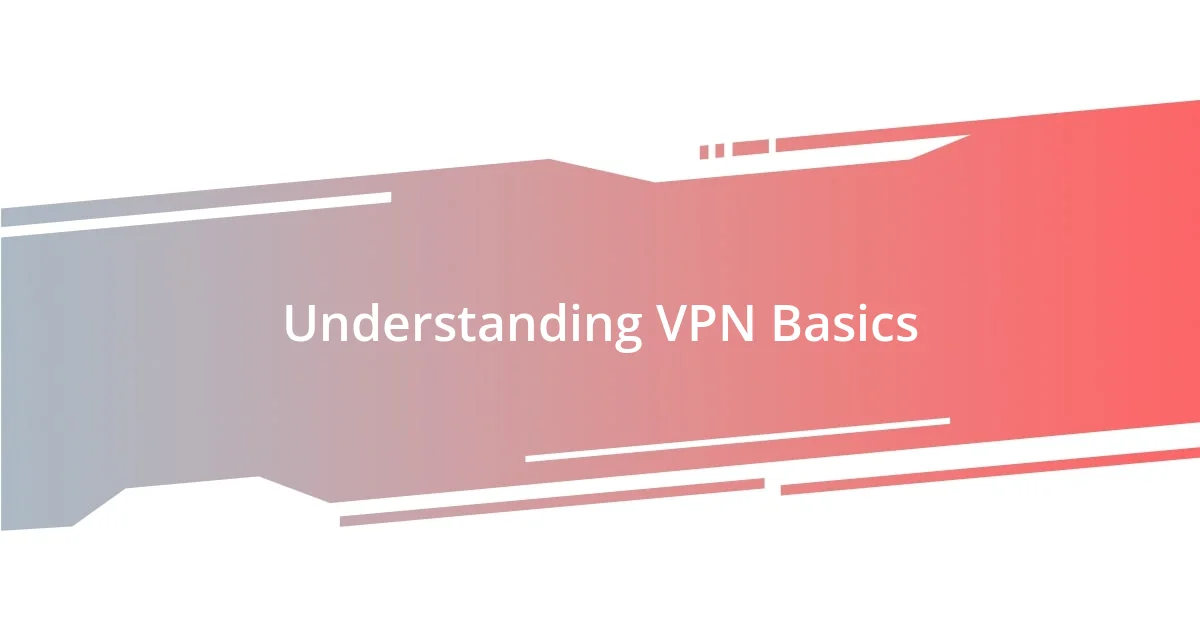
Understanding VPN Basics
A VPN, or Virtual Private Network, essentially creates a secure tunnel between your device and the internet. I remember the first time I connected to a public Wi-Fi network at a coffee shop. I felt uneasy about my data being exposed, which is when I realized the true value of a VPN. It became my shield against potential cyber threats lurking in such open spaces.
When you use a VPN, your internet traffic is encrypted, which means that outsiders can’t easily see what you’re doing online. I often pondered how much I might be exposing myself just by browsing or streaming on unsecured networks. That’s when I understood that encryption isn’t just tech jargon; it’s my safeguard in an increasingly connected world.
Moreover, a VPN allows you to change your virtual location, giving you access to content that might be restricted in your region. I once wanted to watch a show that was only available in another country and, after switching on my VPN, I felt a wave of excitement as I bypassed those restrictions. It’s empowering to know that you can take control of your online presence and enjoy the freedom the internet should offer.
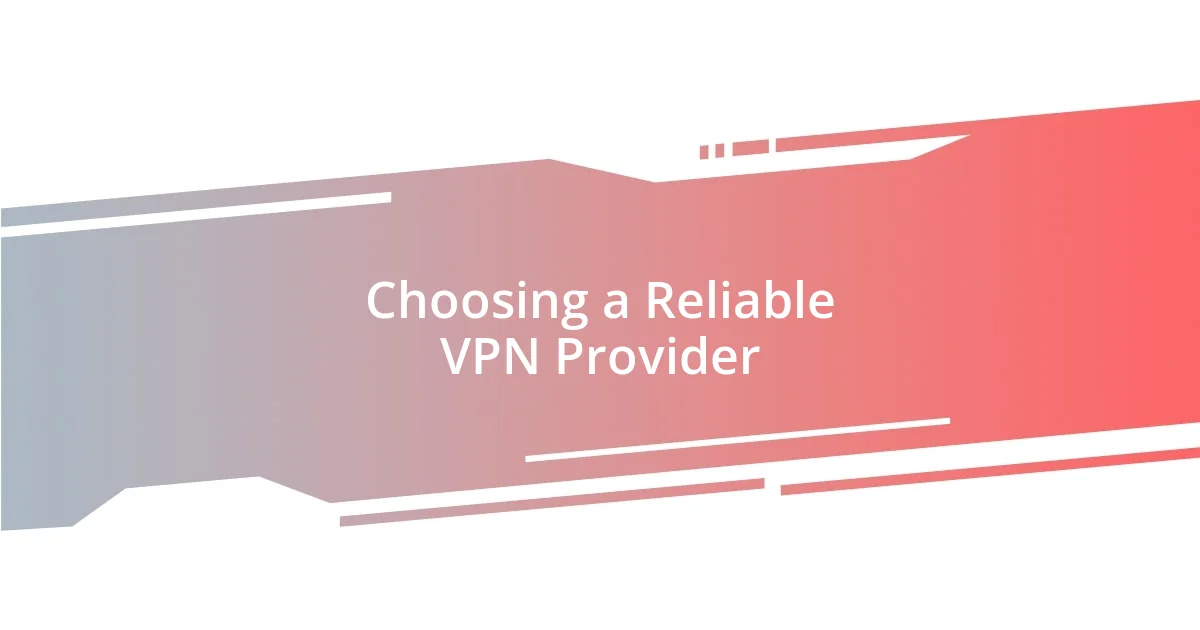
Choosing a Reliable VPN Provider
Choosing a reliable VPN provider can feel overwhelming with so many options out there, but I’ve learned that a little research goes a long way. When I was on the quest for my ideal VPN, I focused on providers known for their strong encryption standards and transparent privacy policies. After digging deeper, I realized that trusting a VPN with my data is not just about the features; it’s about finding a company that prioritizes user privacy and security above all else.
Here are some key factors I considered when choosing a reliable VPN provider:
– No-logs policy: Ensure the provider doesn’t keep records of your online activity.
– Reputation and reviews: Check independent reviews to gauge user satisfaction and service reliability.
– Strong encryption protocols: Look for VPNs that use AES-256 encryption for robust protection.
– Kill switch feature: This ensures your internet connection is cut off if the VPN disconnects unexpectedly, preventing data leaks.
– Customer support: A responsive support team can make all the difference when you encounter issues or have questions.
Taking the time to evaluate these aspects truly made me feel more at ease, knowing that I was investing in my online security rather than just selecting any random service. When I finally found my perfect match, it felt like I had fortified my digital fortress, and that sense of security has made my internet browsing much more enjoyable.
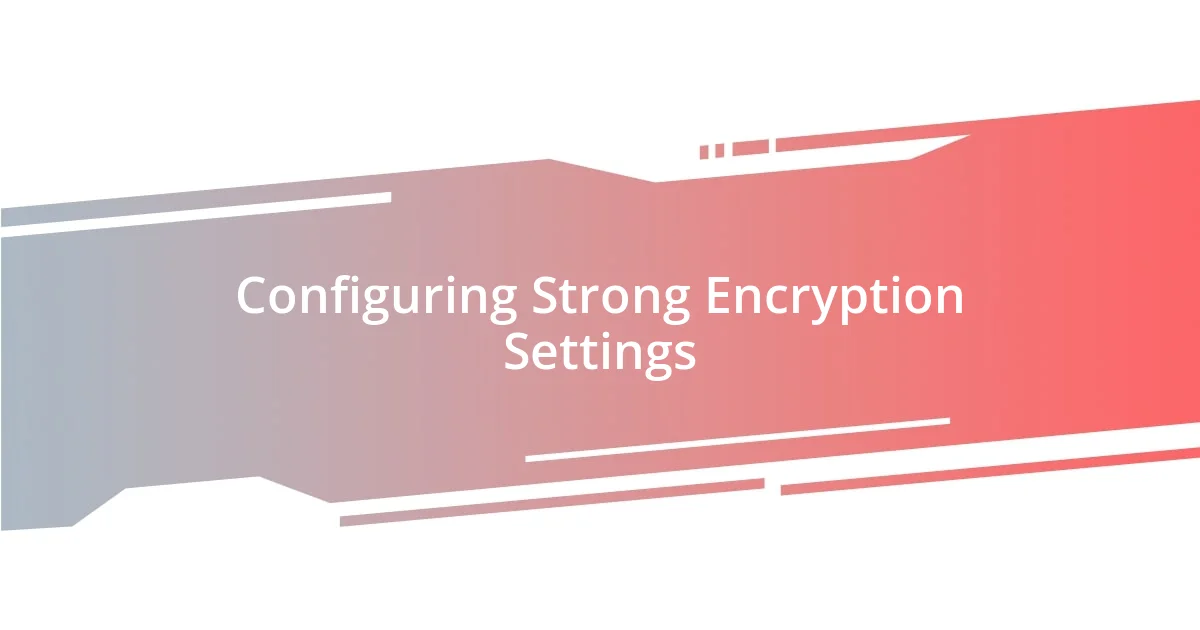
Configuring Strong Encryption Settings
Configuring strong encryption settings is essential for enhancing your VPN security. When I first started exploring VPN settings, I was surprised at how many options were available. It can be a bit confusing, but I found that sticking to the strongest protocols, like OpenVPN and AES-256 encryption, provides the most robust defense against potential eavesdroppers. Each time I switched to these settings, I felt an extra layer of comfort, understanding that the quality of my encryption truly impacts my online privacy.
One of the things I learned along the way is that different encryption settings can yield varying levels of performance. During trials with several configurations, I discovered that while some provided stronger security, they occasionally slowed down my connection. I recall a time when I was trying to stream a series I loved but faced buffering issues due to the encryption settings I’d chosen. Balancing speed and security felt like a delicate dance, but ultimately, I realized that a small decrease in speed was well worth the peace of mind.
The table below summarizes the various encryption protocols and their strengths, which I found helpful when deciding what to configure for my VPN.
| Encryption Protocol | Security Level |
|---|---|
| AES-256 | High |
| OpenVPN | High |
| L2TP/IPsec | Moderate |
| PPTP | Low |
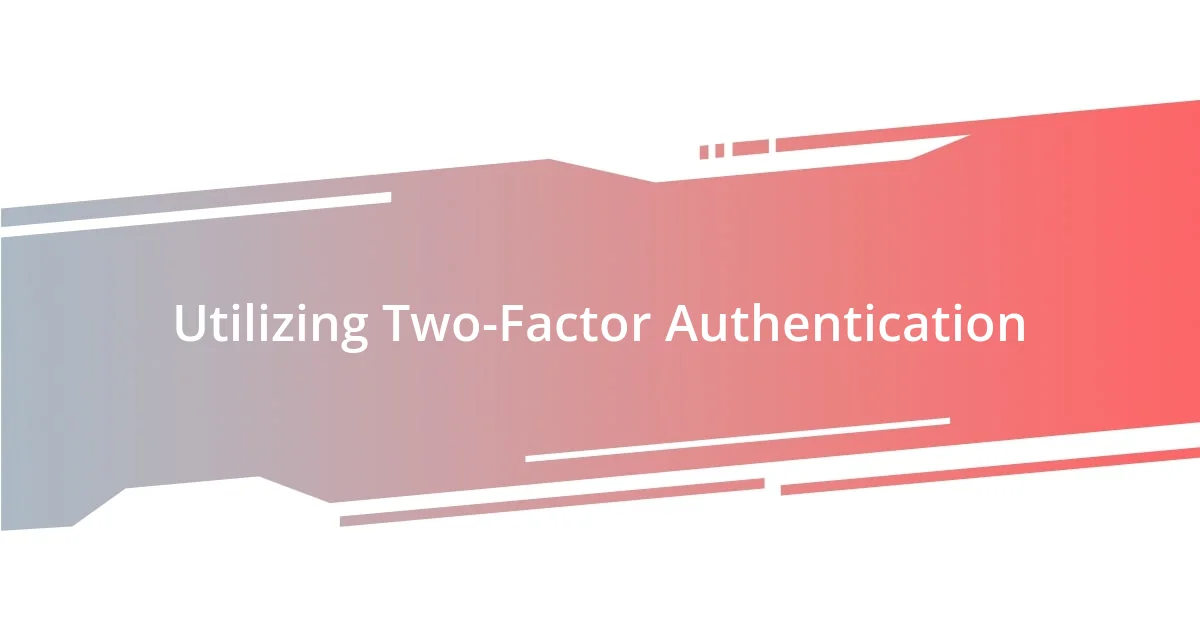
Utilizing Two-Factor Authentication
When I decided to utilize two-factor authentication (2FA) for my VPN, it felt like adding a new lock to my digital door. The convenience of a single password just didn’t cut it anymore, especially with all the news about data breaches. By enabling 2FA, I transformed my VPN login into a two-step process that required not just my password but a secondary code sent to my phone. This extra step may take a few seconds, but it provides such reassurance that I won’t have to worry about someone just guessing my password and slipping through the cracks.
There was a moment when I almost forgot my phone at home, and I felt a rush of anxiety as I contemplated how that would affect my access to my VPN. I questioned whether I could still log in without it, and honestly, it highlighted just how effective the two-factor authentication system was. Knowing that my VPN, guarding my sensitive data, was fortified by this additional layer made me realize the importance of relying on tools that demand a bit more of me but offer much greater security in return.
The best part? Almost all reliable VPN providers offer 2FA as an option now, and the process is straightforward. I remember the satisfaction I felt when I completed the setup; it was as if I had taken a final step in a security journey that I had embarked on. It reminded me that, in the world of online privacy, sometimes the simplest actions can yield the most powerful outcomes. Have you taken that extra step yet? I highly recommend it.
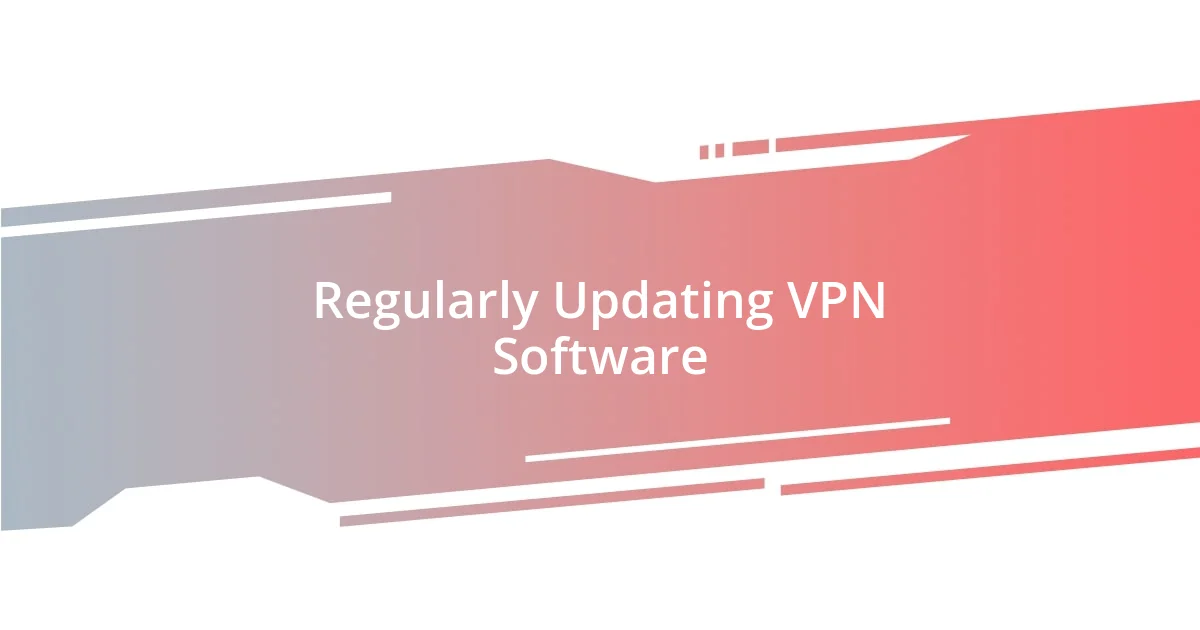
Regularly Updating VPN Software
Keeping your VPN software updated is absolutely vital for maintaining your security. I learned this lesson the hard way when I read about a recent vulnerability in one of the VPNs I used. It was unsettling to realize that I had been exposed, all because I had delayed that simple update. Now, I treat software updates like a ritual; I make it a point to check for updates regularly and install them promptly.
I also remember a time when I accidentally overlooked an update notification. Days later, I found myself encountering unusual connection drops. After some investigation, I discovered that the issue was tied to outdated software. This experience was a stark reminder of how easily vulnerabilities can arise. Now, I’ve turned on automatic updates to avoid the hassle and potential risks of forgetting to update manually.
In my opinion, treating updates as a crucial part of your VPN routine can feel like an enriching practice in security mindfulness. Have you ever felt that thrill of knowing you’re doing everything you can to protect your data? When I hit that “update now” button, it feels like I’m fortifying my defenses, ensuring my online activities remain protected against any lurking threats. Regular updates not only enhance security but also improve performance and user experience, making it a win-win situation.
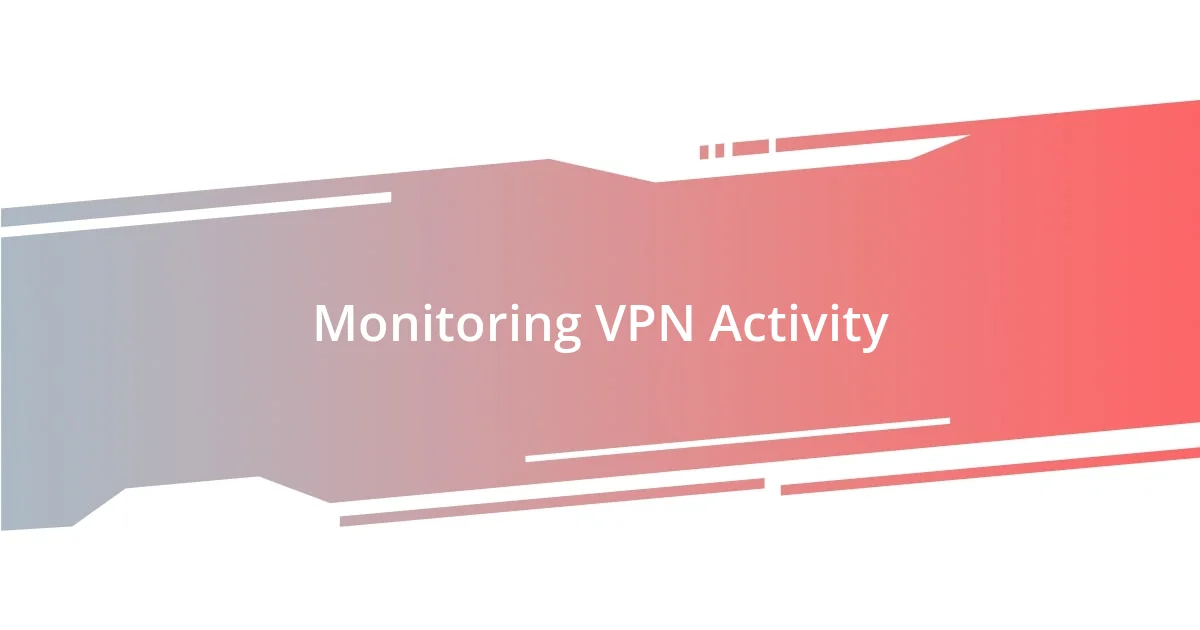
Monitoring VPN Activity
Monitoring my VPN activity has become an essential practice in my quest for enhanced online security. I remember the first time I discovered how to check activity logs—I felt like I had uncovered a hidden feature that opened up a new level of control. By reviewing these logs regularly, I could identify any strange connections or unexpected access attempts, and honestly, it gave me peace of mind. Have you ever paused to consider who might be using your VPN when you’re not watching?
I also found that setting up alerts for unusual login attempts was a game-changer. I recall one night while relaxing on my couch, I received a notification about a login from an unfamiliar location. The adrenaline rush reminded me of the importance of staying vigilant—I quickly changed my password that evening. It’s incredible how such simple tools can empower you, serving as digital watchdogs while you navigate your online world.
Every time I see a notification about my VPN activity, it reinforces my commitment to protecting my privacy. In the past, I would have overlooked such messages, but now they serve as daily reminders to stay engaged with my digital security. I often ask myself, “Am I doing enough?” Monitoring my VPN isn’t just about tracking activity; it’s about actively participating in my security journey, ensuring that I’m always aware and prepared against any potential threats.
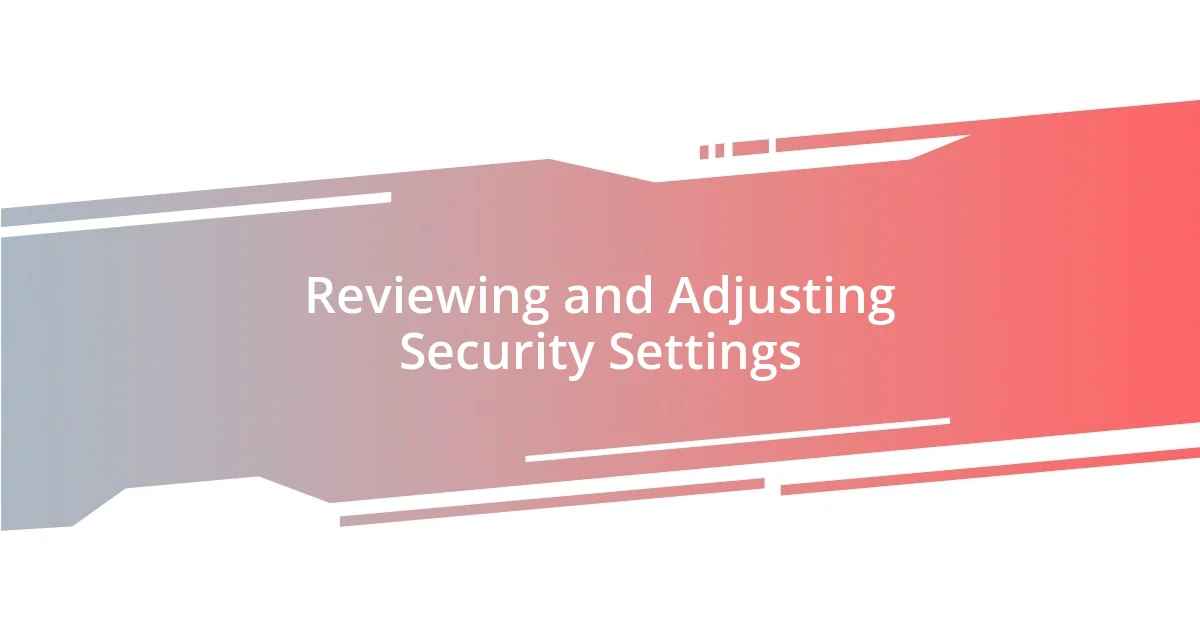
Reviewing and Adjusting Security Settings
I often find myself diving deep into my VPN’s security settings, a practice I didn’t consider essential until a close call. One day, while scrolling through my settings, I stumbled upon the scrambling options. The thought that I could add an extra layer of encryption was exhilarating—like discovering a secret vault! Have you ever felt the thrill of learning a new feature that could potentially fortify your defenses? Adjusting settings can be an empowering experience that transforms the way you view your online safety.
I remember when I decided to experiment with different encryption protocols, like OpenVPN versus L2TP/IPsec. At first, I was bewildered by the technicalities—how could I choose the right one? I took the plunge, testing each option, and felt a surge of confidence. After settling on OpenVPN, I noticed a measurable improvement in both security and speed. Checking and adjusting these settings isn’t just about following instructions; it’s about tailoring your VPN experience to fit your lifestyle and needs.
Keeping an eye on settings doesn’t just improve security; it also cultivates a sense of control over my online presence. There was a time when a minor adjustment led to a more stable connection for my streaming habits. I can’t help but smile when I recall that moment—finding the sweet spot made my viewing experience so much better. Have you made any adjustments that positively impacted your VPN use? Engaging with my settings often reveals new possibilities that enhance both my security and enjoyment online.
